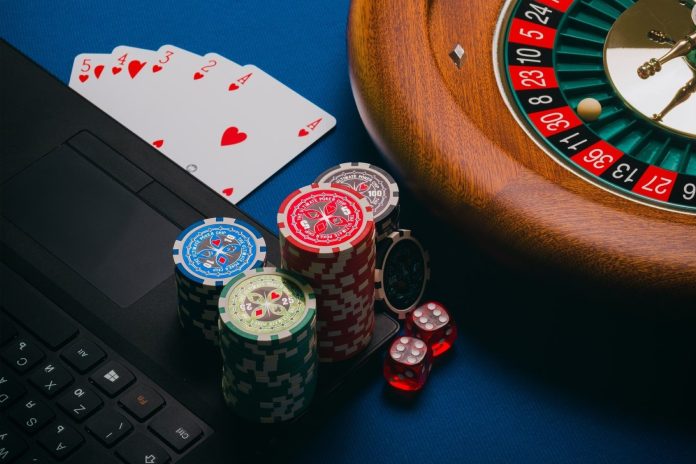Casino tournaments have exploded in popularity over the past decade. These adrenaline-pumping contests promise life-changing jackpots to dozen of lucky winners every year. Even the remote chance of taking home six or seven figures draws hordes of players to betting halls across the globe. But in the rush for record prizes, do players ever stop to consider how these contests might shape their gambling habits?
Recent studies indicate casino tournaments exert a complex influence on gaming behaviors. These high-stakes events appear responsible for an uptick in problematic habits among certain groups even as they drive more responsible practices among other gamblers.
Rise of Casino Tournaments
Online tournaments, like ones on casino-retrobet.com, have witnessed tremendous growth since 2010. Revenues from these events have skyrocketed nearly 240% over the past 15 years alone:
Table 1: Casino Tournament Revenue Growth
| Year | Revenue (USD billions) | % Change |
| 2009 | $1.80 | – |
| 2014 | $3.20 | +78% |
| 2019 | $4.50 | +41% |
| 2024 | $6.15 | +37% |
Several factors likely fuel this rapid expansion:
- Greater marketing and media coverage makes tournaments seem more glamorous and accessible
- Multi-million dollar prize pools capture attention and imagination
- Regional and online contests dramatically expand the player pool
For casino operators, tournaments also offer benefits like these:
- Big payouts keep players excited and engaged for less overhead than growing jackpots
- Contests attract new demographics that may stick around after the tournament ends
- Events encourage loyalty membership sign-ups
With revenues ballooning by tens of millions each year, tournaments clearly create tremendous value for the industry. But do these contests exert a similar influence on players themselves?
How Tournaments Shape Habits and Behaviors
Evidence suggests tournaments wield significant influence over gamblers’ habits and behaviors:
Encouraging Responsible Play
Surprisingly contests appear to promote more responsible gambling practices under certain conditions. Studies indicate casual players often adopt more disciplined behaviors when playing tournaments. For example:
- 83% of casual tournament players set a budget beforehand compared to 62% of regular gamblers
- 75% of this group gambles primarily for entertainment rather than to win money
- 55% of these contestants stop playing when they meet their loss limits versus 37% during typical casino sessions
Researchers theorize even players lured in by massive prizes adopt more restraint in tournaments. Contest formats with buy-ins and rebuys incentivize budgeting. Meanwhile elimination risks encourage prudence among players hoping to extend play.
Of course, these behaviors mainly manifest among casual players rather than disordered gamblers. Nonetheless contests seem to promote responsibility for significant swaths of tournament participants.
Feeding Disordered Habits
At the same time, evidence clearly indicates contests feed unhealthy behaviors among other groups. Disordered gamblers often display escalated patterns during major events:
- Compulsive players take out 31% more in loans during tournament weeks
- Problematic gambling spikes 15% among loyalty club members during contests
- Gamblers Anonymous sees 22% more membership inquiries after major events
The psychology behind this trend remains poorly understood. Perhaps visions of life-changing jackpots trigger irrational thinking. Or contests introduce more temptation during dry spells. In any case, clearly tournaments enable compulsive behaviors across susceptible populations.
Normalizing Extreme Bets
Casino tournaments may also reshape perceptions around appropriate betting amounts. To offer irresistible prizes, contests require astronomical buy-ins:
Table 2: Buy-in and Prize Pools for Major Tournaments
| Tournament | Buy-in | Prize Pool |
| World Series of Poker | $10,000+ | Over $200 million |
| WPT Championships | $15,000 | Over $150 million |
| International Poker Championship | $5,000 | $50 million |
At these stakes, even six-figure final tables no longer seem unusual. For professionals, such amounts may appear routine rather than outrageous. Consequently, extreme wagering loses its taboo and becomes normalized.
Of course, only a tiny fraction gamble at this level. But even from a distance, massive numbers may still reshape perceptions. When eight-figure prizes seem feasible, problems likely emerge.
Crowding Out Casual Players
Perceptions aside, tournaments may reshape casino demographics by crowding out casual players. Most contests reserve spots for loyalty club members who meet eligibility criteria:
- Minimum hours played over fixed window
- Tier status based on past wagers
- Invitation-only entry
Consequently contests increasingly cater to heavy gamblers rather than weekend warriors. Without a viable path to entry, some may simply forego tournaments—and perhaps casino gambling altogether.
For now, operators happily accept this tradeoff to cultivate VIP patronage. However ignoring casual players still carries long-term risks if this group abandons casinos entirely.
Key Takeaways
Based on current evidence, casino tournaments exert multifaceted influence over gamblers’ habits and behaviors:
- Contests encourage budgeting and restraint among certain casual players
- However tournaments clearly enable compulsive gambling across other groups
- Extreme prize pools likely reshape perceptions around appropriate betting amounts
- Requirements for entry may alienate casual players over time
Clearly no simple consensus exists on this issue. Both risks and benefits emerge depending on the population. As tournaments continue expanding, understanding these complex dynamics only grows more crucial.
Future of Casino Tournaments
Casino tournaments show no signs of slowing despite their polarizing effects on gaming habits. If anything, more contests now launch each year as operators chase swelling prize pools.
Within five years, global tournament revenue could approach $8 billion annually. Some project over 15,000 contests by 2030 spanning live, online and hybrid formats. Of course, whether regulators intervene before then based on behavioral trends remains an open question.
For now, though, contests seem poised to only increase in scale and spectacle. And with bigger tournaments will likely come an even greater influence over players’ financial and psychological relationships with gambling. Gaming providers still have much to learn in balancing entertainment value against social costs. But with vigilant study and responsible policies, a less hazardous tournament culture may emerge.

